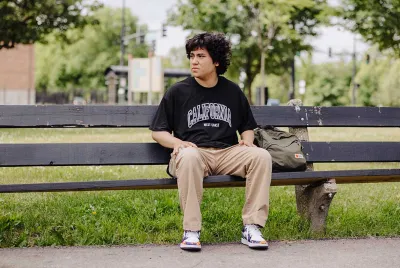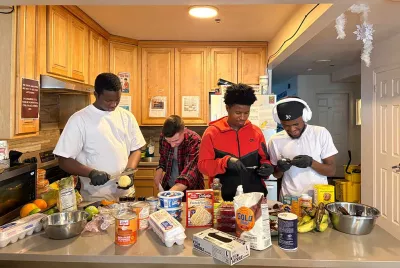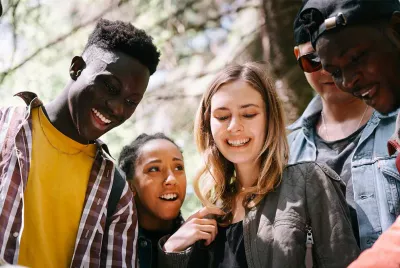Mental Health First Aid Training for Frontline Staff
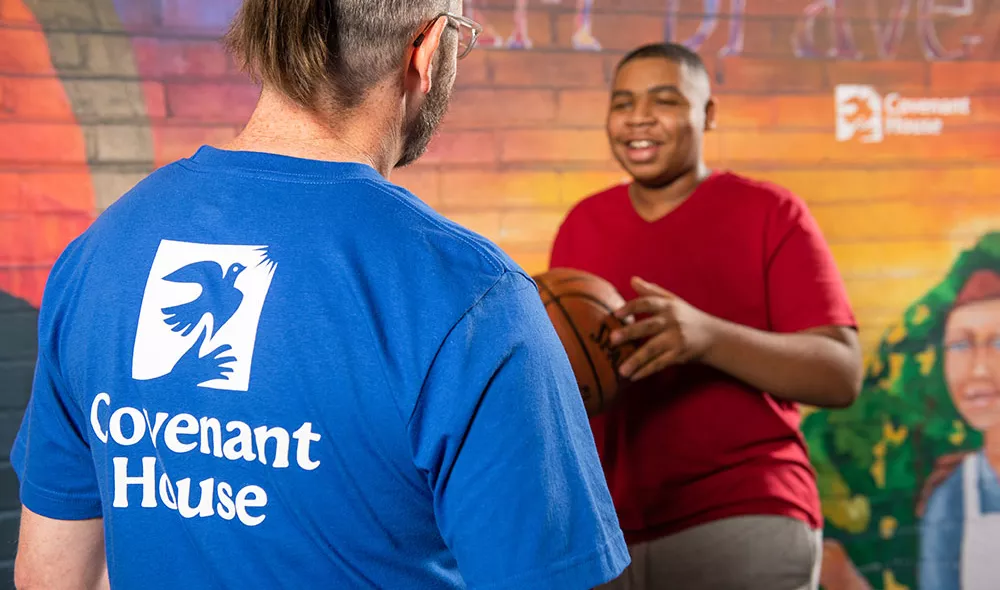
Over the past three years, Covenant House has been training staff in Youth Mental Health First Aid, making care immediate in a mental health crisis and advancing our goal to expand our mental health services, a key component of our goal to end youth homelessness as we know it.
When eight frontline managers at Covenant House New York completed a daylong YMHFA training this spring, they felt like some of the tension around responding to a young person experiencing a mental health challenge had been lifted.
“Frontline staff are very close to that fear about what to do when a crisis arises,” says Eli Hernandez, director of training and evidence-based practice implementation at CHNY. “This training was a relief because it gave them concrete steps to take when they witness a youth in crisis.”
That’s the purpose of YMHFA, a training program designed specifically for adults who work with young people who are vulnerable to mental health and substance use challenges. The program was designed by the National Council for Mental Wellbeing and adopted by Covenant House for implementation across all our sites.
“It’s another tool on our toolbelt,” Eli says.
So far, in three years, the program has trained 413 Covenant House staff across 12 of our affiliates. Thirteen staff at Covenant House sites across the U.S. and Canada have become certified YMHFA trainers and can now expand the practice to additional personnel at their sites.
Our goal is to ensure all staff, from receptionists to security personnel to case workers and cooks, are able to react when, for example, a young person in the front lobby or in the cafeteria is triggered by something in the environment and experiences a mental health crisis.
Meeting a Critical Need
Across our federation, 53% of youth in our care report having a mental health condition. They’re not alone. In the United States, 1 in 5 teens and young adults live with a mental health condition. Half of all mental illnesses begin around age 14 and 75% by the time a youth reaches their mid-20s. For our youth, who are within this age range, their condition is compounded by the trauma of homelessness and/or housing instability.
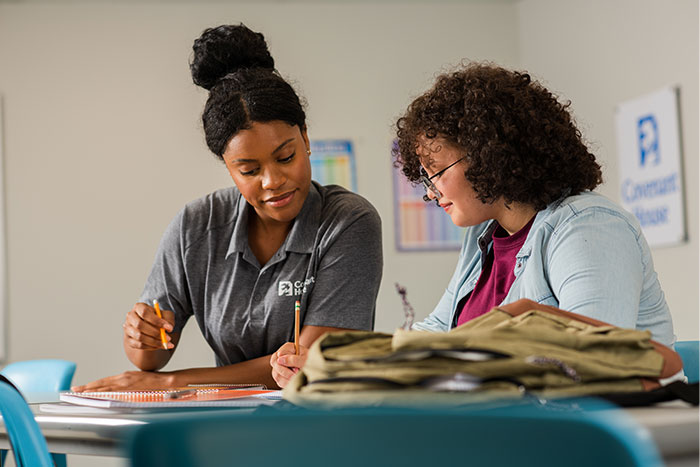
Part of Covenant House’s strategic vision, “and central to supporting young people on their way to independence, is expanding access to mental health services,” says Christina Newport, senior vice president of programs. “We’ve been laying the groundwork for this, and over the last several years, we've expanded access to the evidence-based foundational training of Youth Mental Health First Aid.”
YMHFA shares our Covenant House approach to relentlessly caring for young people. “It’s very youth-focused, very youth centered,” Eli says. “It connects to other trainings that guide our work like motivational interviewing,” a counseling approach that helps youth identify the internal motivation they need to tackle their challenges and move their lives forward.
The training provides staff five practical steps to confront a mental health crisis:
- Assess the situation for harm.
- Listen nonjudgmentally.
- Give reassurance and information.
- Encourage appropriate professional help.
- Encourage self-help and other support strategies.
“Ordinarily,” Eli says, “when a challenge arises, frontline managers would immediately call the mental health professionals on staff. They should still do that, but now they know there’s a lot they can do in the moment to help a young person begin to manage their crisis.”
The result, so far, is everything we’d hoped it would be. Staff who already were wrapping our young people in unconditional love and absolute respect tell us they feel the sessions have increased their knowledge, skills, and confidence and enabled them to better support our youth when they’re going through a mental health or substance use challenge.
News and Insights
All news & insightsShelter Is Only the Beginning
From crisis to care: Find out what it's like when a young person enters our doors.
